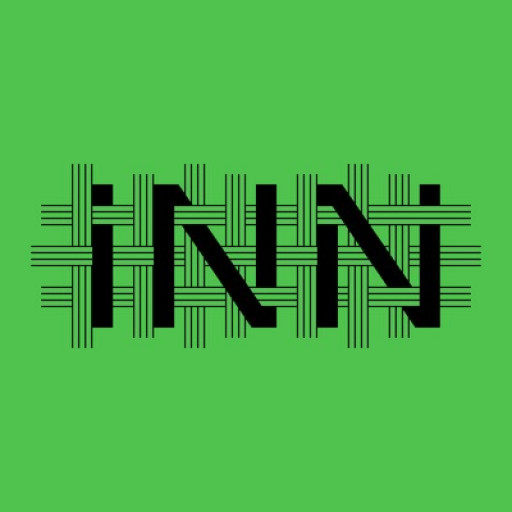Photos of university / #unibergen
The Master's degree programme in Applied and Computational Mathematics at the University of Bergen offers students a comprehensive education in advanced mathematical methods and their applications across various scientific and engineering disciplines. Designed for individuals with a strong background in mathematics, the programme emphasizes both theoretical foundations and practical problem-solving skills, preparing graduates for careers in research, industry, and academia. Throughout the programme, students will engage with a diverse range of topics such as numerical analysis, mathematical modeling, optimization, differential equations, stochastic processes, and computational methods. The curriculum is structured to foster analytical thinking and innovative approaches to complex real-world problems, enabling students to develop sophisticated mathematical models and algorithms. A significant component of the programme involves hands-on projects and collaborations with industry partners, providing valuable experience in applying theoretical knowledge to real-life scenarios. Students will also have access to state-of-the-art computational resources and research groups specializing in applied mathematics, further enhancing their learning and research capabilities. The programme encourages international mobility, with opportunities for exchange semesters and collaborative projects with global institutions. Graduates of the Applied and Computational Mathematics programme will be well-equipped with versatile skills that are highly sought after in sectors such as finance, technology, engineering, data science, and scientific research. They will also have a solid foundation for doctoral studies, should they wish to pursue an academic career. The University of Bergen’s interdisciplinary environment and close ties to industry ensure that students receive a high-quality education that balances rigorous mathematical training with practical applications, making them competitive candidates in the global job market.
Applied and Computational Mathematics at the University of Bergen offers a rigorous and comprehensive education designed to equip students with essential mathematical skills and computational techniques applicable to real-world problems. The programme combines theoretical mathematics with practical computational methods, preparing graduates for diverse career paths in industry, research, and academia. Throughout the programme, students will engage in advanced courses covering mathematical analysis, algebra, and statistics, alongside specialized modules in numerical methods, mathematical modeling, data analysis, and programming. The curriculum emphasizes developing problem-solving abilities through project work, computer simulations, and collaborative research projects, fostering both independent thinking and teamwork skills. Students have access to modern facilities and software tools, supporting hands-on experience and practical application of theoretical concepts. The programme also encourages engagement with current challenges in technology, science, and engineering, allowing students to contribute innovative solutions to complex problems. Additionally, students can participate in research projects under the supervision of experienced faculty, gaining valuable insight into the latest developments in applied mathematics. The structure of the programme ensures a solid foundation in mathematics, while also promoting interdisciplinary understanding and communication skills essential for working in diverse professional environments. Graduates of this programme will be well-prepared for employment in sectors such as information technology, finance, engineering, data science, and academic research, or for pursuing further studies at the master's or doctoral level. The University of Bergen is committed to providing a stimulating academic environment that fosters curiosity, creativity, and scientific excellence.
Financing studies for the Applied and Computational Mathematics program at the University of Bergen are primarily funded through a combination of government funding, grants, scholarships, and student loans. Norwegian higher education institutions benefit from substantial government subsidies aimed at promoting accessible education for both domestic and international students. Norwegian students admitted to this program are typically eligible for state student loans and grants provided by the Norwegian State Educational Loan Fund (Lånekassen), which covers tuition fees and living expenses, ensuring that financial barriers are minimized for Norwegian and EU/EEA students.
International students outside the EU/EEA may need to rely on other sources of funding, including scholarships offered by the university or external scholarship programs. The University of Bergen offers multiple scholarships and financial aid options for international students, which partially or fully cover tuition fees and sometimes living costs. Additionally, students often seek research or teaching assistantships, which provide stipends and can offset part of the expenses associated with enrollment in the program. These positions are competitive and usually require students to assist faculty with research projects or teaching activities.
Students are encouraged to explore external funding opportunities such as Erasmus+ exchanges, which may provide financial support for mobility and study abroad periods integrated into the program. The university’s international office provides guidance on available scholarships, grants, and funding schemes suitable for prospective and current students. Moreover, students may also consider private loans or sponsorships, although these are less common among Norwegian students due to the availability of governmental financial support.
In summary, the financial structure for the Applied and Computational Mathematics program at the University of Bergen prioritizes accessible education through governmental grants and loans for Norwegian and EEA students, complemented by various scholarships, research positions, and external funding options for international students. This diversified approach aims to ensure that students from different financial backgrounds can pursue their studies without undue hardship, fostering a diverse and inclusive academic community.
Applied and Computational Mathematics at the University of Bergen offers students a comprehensive education in mathematical theories and computational techniques applicable to real-world problems. This programme is designed to develop students' analytical thinking, problem-solving skills, and numerical proficiency, preparing them for careers in academia, research, or industry sectors such as finance, data analysis, engineering, and technology. The curriculum typically covers fundamental areas including linear algebra, calculus, differential equations, numerical methods, and mathematical modeling. Students are also introduced to advanced topics like stochastic processes, optimization, and computational algorithms, ensuring they are well-equipped to handle complex mathematical challenges using modern computational tools. Throughout the programme, students engage in both theoretical studies and practical applications, often participating in projects, computer labs, and group work to foster collaborative skills and hands-on experience. The university emphasizes research-led teaching and encourages students to participate in research activities, benefitting from faculty expertise in applied mathematics, computational methods, and interdisciplinary research projects. Students generally have access to state-of-the-art facilities and software, which enhance their learning experience and prepare them for professional roles. The programme may also include opportunities for internships, industry collaborations, or exchange programmes, allowing students to gain international exposure and real-world industry experience. Graduates of Applied and Computational Mathematics at the University of Bergen are highly sought after due to their strong analytical foundation, technical skills, and ability to solve complex mathematical problems across a variety of fields. The university's geographical location and strong connections with research institutions further enhance students' academic and professional development. The programme aims to produce graduates who are not only proficient in theoretical mathematics but also capable of applying computational methods effectively to innovate and improve processes in various sectors.





